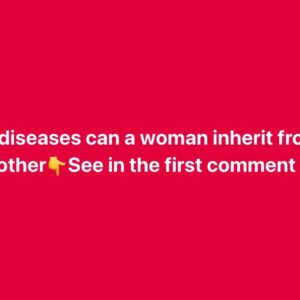In the quiet of our home, as the clock ticked past 11 p.m., I realized something was amiss. My wife, who usually greeted me with a warm smile and dinner, hadn’t returned from work.
My wife, who is usually home around the same time as I am, had been returning from work late for a while. This was odd because, in our years together, she’d never stayed out this late without a call or a tex
One night at around 11 p.m., I dialed her number, and when she answered, she tried to sound upbeat, mentioning she was still at the office, surrounded by paperwork. But her voice had a tremble that didn’t sit right with me.
This pattern continued, turning my concern into a nightly concern. One night, as I wandered into the living room in search of a glass of water, I found her there, sobbing quietly.
It was heart-wrenching to see her in such distress, especially considering she was seven months pregnant. She attributed her emotional state to pregnancy hormones, but the pattern of late nights and tears suggested something else.
Driven by a growing sense of unease, I decided to delve deeper into the mystery of my wife’s late nights. It wasn’t until I stumbled upon her phone one day, seeing a barrage of messages from her coworkers, that the pieces began to fall into place.
What I found was not an affair, or anything to do with me at all. Instead, my wife was facing a challenge at work that I had no idea about.
Her colleagues were not planning work projects or discussing deadlines; instead, they were bullying her, delegating their workload onto her to free up their evenings for leisure, leaving her to drown in tasks until the early hours.
The messages were cruel, targeting her appearance, her capabilities, and her dedication. Each word was a dagger, and my heart bled for her. How could she bear this silently?
How could she face such venom with a smile for the sake of professional harmony? My rage was almost uncontrollable, but I knew any reckless confrontation could exacerbate her situation.
One day, armed with the knowledge of her suffering and a plan to end it, I left work early. I wanted to surprise her, to take her away from that toxic environment, if only for an evening.
I decided that after I has left work early, I would go to her job and pick her up. Once I had picked her up I planned to take her on a dinner date and to purchase some items for our baby.
Arriving at her office, I encountered her tormentors, leaving in a group, their laughter echoing across the parking lot. My presence startled them, my uniform and ID badge confirming I am a lawyer serving as a silent testament to my seriousness and my willingness to protect my wife at all costs.
The confrontation was brief but impactful. I made it clear that I was aware of their behavior and would not hesitate to take legal action if necessary.
The fear in their eyes was evident, and though I never shared this encounter with my wife, the change in her was immediate. She began coming home earlier, her spirits lifted, and her smile returned.
This wasn’t just about confronting the bullies or about the late nights. It was about understanding, compassion, and the unwavering support we must offer to our loved ones, especially in their moments of vulnerability.
As our story unfolded, it became a testament to the strength of human connection, the resilience in the face of adversity, and the boundless power of love
It was as if a weight had been lifted from her shoulders, allowing her to breathe, to be herself again. This transformation was not just visible in her smile or her eyes but in the very air around her, now filled with a sense of peace and hope.
However, this journey was not without its challenges. Despite the immediate change in her workplace environment, the scars of bullying lingered.
Some nights, she would wake up from nightmares, her fears manifesting in her dreams, painting her face with worry even in her sleep. It was during these moments that I realized the true extent of her ordeal.
Bullying, especially in the workplace, is not just about the overt acts of cruelty or the blatant disregard for someone’s well-being. It’s about the silent, insidious way it seeps into one’s psyche, eroding self-confidence, and fostering a sense of isolation.
This realization brought me to a deeper understanding of my role as her partner. It wasn’t enough to have stood up to her bullies; I needed to be her constant source of support, her safe haven in a storm.






